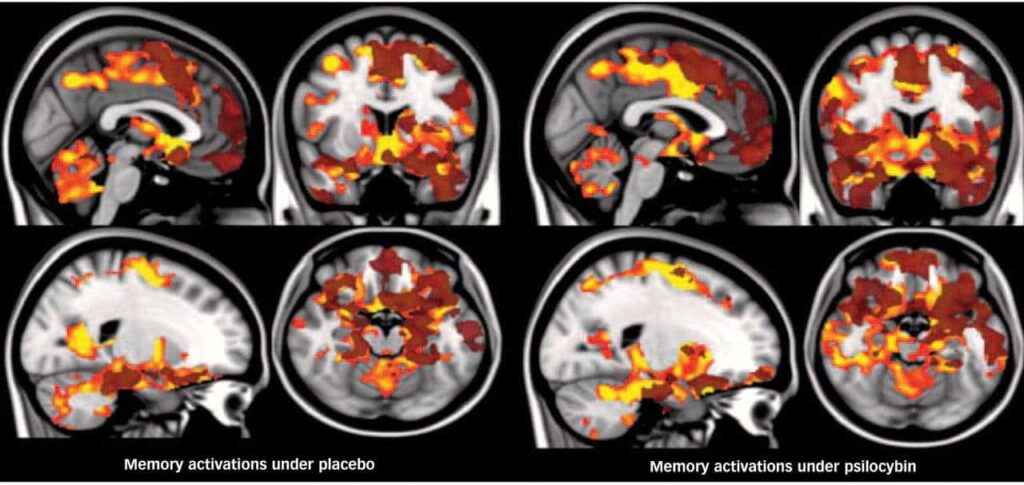For years, I’ve been obsessed with answering the following question: Why are Americans convinced that it’s wrong to expand and improve one’s conscious mind with the help of plant substances?
After all, we’re more than eager to use plant substances for easing the pain of stomach or tooth ache. Why do we stint at using natural plants to improve our feelings?
This morning I awoke with a new answer: The problem is western philosophy.
Beginning with the pre-Socratics, western society became convinced that thought was the best way to understand and cope with the world around us: thought, not feeling. Our feelings could not be trusted, after all, whereas 2+2 was always 4.
This view is so basic now to the western world outlook that we’re unlikely to question it, the view that thought should always trump feeling as our guide to the world. But no matter how compelling this proposition must seem to a society in which its truth is taken for granted, there are reasons to believe that it is wrong, or at least that it provides a drastically inadequate means of approaching life and its problems from a human point of view.
For evidence of this one-sided focus on rationality, we have only to consider the absurd presupposition of Freudian psychotherapy: namely, that one will be cured of psychological problems merely by understanding them. Somehow merely explaining the origins of one’s bad feelings will make them go away.
Such a proposition would not even make philosophical sense to us (it would read like the non-sequitur that it is) unless we presupposed the philosophical superiority of thought over feelings. In a world without that presupposition, an outspoken psychiatric patient would naturally be tempted to chide their Freudian psychotherapist as follows: “I’m hurting emotionally inside and you’re going to cure that problem with WORDS? How about giving me a hug, instead – or a plant-based entheogen – or both?”
Even the highly educated standard bearers of this rationality-based modality tacitly acknowledge its ultimate uselessness, as Freud ensured his own self-fulfillment not with psychotherapy but with the frequent use of cocaine.

Having rendered psychotherapy expensive and ineffective for well over half a century (before it was replaced by the even more expensive and ineffective pill-based therapy), this purblind reliance on reason alone (at the expense of feeling) is now boding a bleak future for society in general, as materialists like Elon Musk and Eric Schmidt strategically seek to make their users behave more like robots, and thus become more predictable for the purposes of surveillance capitalism.
Such robotization, after all, is the end game of thought-based society, at least when it embraces the dreary tenets of materialism: namely, that human beings are nothing special, that consciousness is a mere epiphenomenon, and that there is no inherent meaning in life. If that’s all there is, as Peggy Lee might sing, then we may as well be robots.
But this preference for thought over feeling is not the only way to approach life. There is an alternative approach, based on feelings and experience, an approach that is aptly evoked by Quanah Parker of the Native American Church when he observes that:
“The White Man goes into church and talks about Jesus. The Indian goes into his tipi and talks with Jesus.”
In other words, in religious matters, as in psychotherapy, western society finds it unseemly to actually experience strong emotions. We would rather talk about them. And so when it comes to religion, we are ready to talk the talk, but we would never feel comfortable actually walking the walk. To do so would make us feel like a classical waltzing pro who has been suddenly transported to a hip-hop dance floor. The whole experience would feel wrong and embarrassing to overthinking westerners like ourselves!
Likewise, psychiatrists are comfortable talking to their patients about emotional problems, but they would never think of pharmacologically inducing the actual positive mental states that a cure would represent – that would be too messy, with results too hard to capture on an Excel spread sheet.
Better a cure that involves rational understanding than one that “merely” makes one feel better. (Luckily for the squeamish thought-obsessed psychiatrist, the drug war has thrown them a face-saving lifeline. By outlawing mother nature’s vast array of mood-altering psychoactive substances, they have given psychiatrists an excuse for depriving humanity of no-brainer medication to improve their mood, medication in whose ritual use the patient can even come to appreciate his or her place in the universe — a side effect that no one has yet to notice in the Big Pharma antidepressants to which more than one in 10 Americans are addicted even as I type this.)
So we have an answer, then.
Why are Americans convinced that it’s wrong to expand and improve one’s conscious mind with the help of plant substances?
Because we westerners are overthinking prudes. Being thought-obsessed, we feel it’s embarrassing to actually get out there and get our hands dirty in any real experience. So we make a virtue of our psychological necessity by pretending that the emotive world is not so important anyway, in fact it’s downright misleading, we say. And so reality for us is to be discussed and parsed, not to be enjoyed. But note that this is a conclusion based more on sour grapes than on logic.
But there is another way of being in the world, the world of feeling, wherein we strive to be a part of the world, rather than merely attempting to understand it from a supposed god’s-eye view – a viewpoint that is no longer even theoretically obtainable to us in any case given the observer-centric nature of the quantum universe.
It is amusing, and perhaps even informative, to realize that in a society in which feelings truly count, the Pied Pipers of the digital revolution would be considered madmen. They would be the inveterate curmudgeons of society who mope around the tribal fireside, mumbling “must be rational” in monotone, dogmatically eschewing the food of the gods, whilst the rest of the community dances ecstatically under a star-filled sky.
